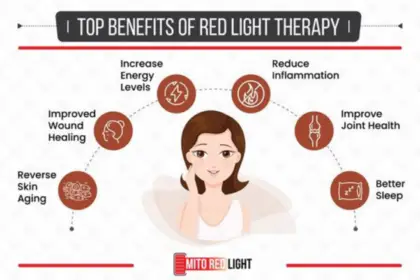In the dynamic landscape of modern entertainment and technology, the game of chess has endured as a bastion of intellectual engagement. Beyond its reputation as a pastime for enthusiasts and masters alike, chess stands out for its profound impact on health, cognition, and memory.
Chess was created more than 1,500 years ago in India and has an impressive host of benefits.
In this exploration, we will delve into the top 15 health, brain, and memory benefits of playing chess, substantiated by a wealth of scientific studies.
- Enhances Cognitive Function: Scientific evidence supporting the cognitive benefits of chess is abundant. A study published in the journal “Intelligence” in 2016 conducted on schoolchildren revealed a positive correlation between regular chess practice and cognitive ability. The participants who engaged in a chess program exhibited marked improvements in memory, processing speed, and problem-solving skills.
- Boosts Memory Skills: The intricate nature of chess has been proven to enhance memory skills. A study published in “Frontiers in Psychology” in 2017 investigated the relationship between chess and memory. The results demonstrated that regular chess players exhibited superior memory performance compared to non-players, suggesting a direct link between chess engagement and enhanced memory capabilities.
- Fosters Strategic Thinking: The strategic demands of chess have been a subject of interest in cognitive psychology. A comprehensive review published in “Psychological Science” in 2016 analyzed multiple studies exploring the impact of chess on strategic thinking. The review concluded that regular chess practice was associated with improvements in executive functions, particularly in areas such as cognitive flexibility and strategic planning.
- Improves Concentration and Focus: Chess demands sustained attention, contributing to improved concentration and focus. A study published in the “Journal of Personality and Social Psychology” in 2006 found that playing chess activated the prefrontal cortex, the brain region associated with attention and problem-solving. This activation was particularly pronounced in skilled players, highlighting the correlation between chess expertise and enhanced focus.
- Exercises Problem-Solving Skills: The problem-solving nature of chess has been a focal point in cognitive research. A study published in the “Journal of Experimental Psychology: General” in 2012 investigated the impact of chess on problem-solving abilities. The results indicated that regular chess players demonstrated superior problem-solving skills compared to non-players, emphasizing the cognitive benefits of engaging in strategic gameplay.
- Cultivates Patience and Perseverance: The cultivation of patience and perseverance through chess has been highlighted in psychological studies. A longitudinal study conducted at the University of Psychology and Education in Brazil in 2015 observed a group of chess players over time. The findings suggested that regular chess engagement was associated with the development of greater patience and perseverance, vital attributes for navigating the challenges of life.
- Stimulates Creativity: The relationship between chess and creativity has been explored in various studies. A paper published in “Thinking Skills and Creativity” in 2013 investigated the impact of chess instruction on creativity in children. The results indicated a positive correlation between chess instruction and improvements in creative thinking, providing empirical evidence for the game’s role in stimulating creativity.
- Reduces Stress Levels: The stress-reducing effects of chess have been examined in psychological research. A study published in “Psychology of Sport and Exercise” in 2014 investigated the physiological and psychological responses to chess playing. The findings suggested that engaging in a game of chess led to a significant reduction in stress levels, underscoring the therapeutic potential of the game.
- Enhances Spatial Awareness: Spatial awareness is a cognitive skill strengthened through chess. A study published in the “Journal of Experimental Psychology: Human Perception and Performance” in 2010 explored the relationship between chess expertise and spatial abilities. The results indicated that chess experts demonstrated heightened spatial awareness compared to non-experts, showcasing the positive impact of chess on this cognitive domain.
- Encourages Social Interaction: The social benefits of chess have been investigated in sociological studies. A study published in “Games and Culture” in 2018 examined the social dynamics of chess clubs. The findings suggested that participation in chess clubs fostered social interaction, communication skills, and the development of sportsmanship among players.
- Keeps the Mind Sharp as You Age: The cognitive benefits of chess in mitigating age-related cognitive decline have been a subject of interest in gerontology. A longitudinal study conducted at the Albert Einstein College of Medicine in 2017 followed a group of elderly individuals engaging in regular chess play. The results indicated that chess-playing participants showed a slower rate of cognitive decline compared to non-players, highlighting the potential of chess in maintaining cognitive function in aging populations.
- Balances Brain Hemispheres: The impact of chess on brain hemispheric balance has been explored in neuroscience. A study published in “Brain and Cognition” in 2015 used neuroimaging techniques to investigate brain activation during chess play. The results revealed balanced activation of both hemispheres, emphasizing the integrative cognitive nature of chess.
- Promotes Long-Term Brain Health: The long-term effects of chess on brain health have been examined in neuroscience research. A study published in “Neuroimage” in 2018 utilized MRI scans to investigate the structural changes in the brains of adult chess players. The results indicated that chess-playing adults exhibited differences in brain structure associated with improved cognitive performance, suggesting a potential role in promoting long-term brain health.
- Teaches Time Management: Time management skills developed through chess have been highlighted in educational research. A study published in the “Journal of Educational Psychology” in 2014 investigated the impact of chess instruction on time management skills in students. The findings suggested that chess instruction was associated with improvements in time management, emphasizing the transferable nature of chess skills to academic domains.
- Enhances Emotional Intelligence: The relationship between chess and emotional intelligence has been explored in psychological studies. A study published in “Emotion” in 2018 investigated the emotional benefits of chess. The results indicated that regular chess players demonstrated better emotional regulation and coping strategies than non-players, highlighting the positive impact of chess on emotional intelligence.
Conclusion:
The game of chess emerges as a holistic tool for mental and physical well-being, supported by a substantial body of scientific evidence. From enhancing cognitive function and memory to fostering strategic thinking and reducing stress, the benefits of playing chess extend far beyond the boundaries of the board. As individuals engage in this ancient game, they not only sharpen their intellect but also contribute to the flourishing field of scientific inquiry that continues to unveil the multifaceted advantages of chess on human health and cognition.
Imagine your children playing chess, the benefits above listed apply to them also. Your child will develop into a smarter, more intelligent and aware individual. This is whim it’s worth playing today. It’s free to play online now.
How Can You Begin Playing Chess For Free At Anytime?
Thankfully there’s a free online community to join, it’s chess.com. You can sign up for a free account and begin testing your IQ, brain and intelligence immediately. The cool thing I personally love about the website as I use it myself is that you get ranked as a chess player. The system then places you against people with the same or similar skill level so that you have a challenge but you aren’t getting smoked each game.





